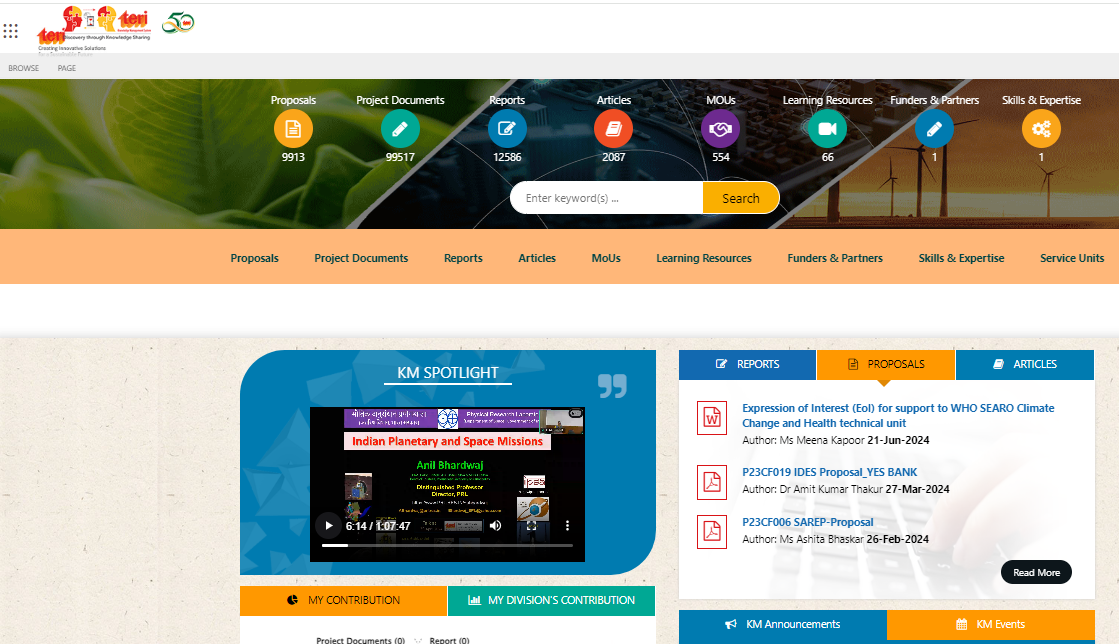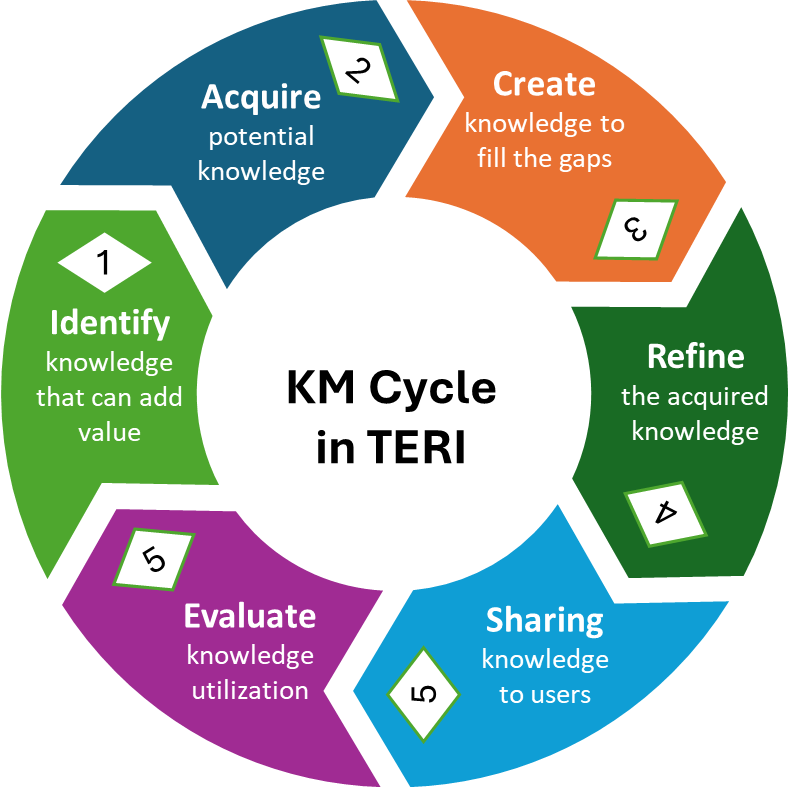Knowledge Management System

TERI Knowledge management System (KMS) is a centralized platform of shared knowledge in multiple repositories for researchers. The KMS supports a multi-disciplinary approach of knowledge capture and dissemination in TERI to facilitate research, learning, collaboration, process alignment and decision making. TERI KM hosts over 2.5 lakh records in 18 diversified knowledge repositories.
Objectives
- Enabling access to centralized knowledge
- Facilitating knowledge sharing and learning
- Enriching research and decision-making through knowledge services
KMS key features include one stop user centric platform with access control facility for all TERI knowledge, research insights, project data, project lessons learnt etc. The system captures individual and division-wise KM usage data to promote organization’s vision and goals.
Centralized Insights: Centralizes meaningful research insights and learning through knowledge sharing using access control.
Capturing Knowledge: Bridges critical data and knowledge gap by capturing knowledge of experts and disseminating within the organization.
Boost Collaboration: Facilitates effective communication and information flow across divisions and disciplines, and fosters collaborative research.
Enhance Innovation: Through historical evidences, KMS encourage new ideas, research scope and foster innovation in sustainability space.
Reduces Redundancy: KM reduces research and decision-making time, efforts and resources by maintaining past evidences in easy retrievable form.
Strengthen Critical Thinking: KMS equip researchers make strong choices with all the relevant data, past experiences, and insights from previous projects to think critically.


